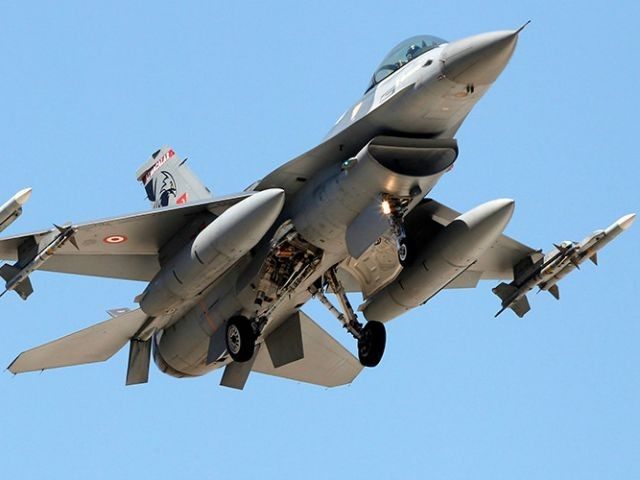The Turkish government announced at the end of last week that it would begin an airstrike campaign in Syria, in tandem with the United States, to create an “ISIL-free zone” in the war-torn nation, following an Islamic State bombing within Turkish territory. Turkey has rapidly expanded its operations to focus more on its Kurdish enemies than ISIS, with reports that Turkey is far outside the “ISIL-free zone” bombing Kurdish positions in Iraq.
Since Turkey first began targeting Islamic State targets in Syria this week, Syrian Kurdish groups have protested that they have been the true, covert target of the air campaign. The Syrian Kurdish military–the People’s Protection Units–have not only opposed the Islamic State, but are widely regarded as the only force with significant military victories against ISIS to their name. The group is allied with the Kurdistan Workers’ Party (PKK), a Marxist-Leninist terrorist group the Turkish government has vowed to eradicate along with ISIS.
Kurdish news outlet Rudaw is reporting that Turkish war planes are bombing northern Iraq, far from the Syrian conflict zones Turkey announced it would engage last week. Turkey is specifically targeting, the report claims, the northern border areas of Iraqi Kurdistan. “A big fire broke out due to the shelling in Mergasur district,” a reporter told the news outlet.
Turkish newspaper Zaman corroborates this report, noting that the Turkish government has “struck several targets of the outlawed PKK in northern Iraq in retaliation for the PKK’s attacks against security forces and police last week.” The PKK took credit for the murder of two Turkish policemen in retaliation for the Turkish bombings. Zaman claims Turkey has targeted shelters and storage facilities belonging to the PKK in northern Iraq. The PKK operates independently of the Kurdish Regional Government of Iraq, led by President Masoud Barzani, though it has participated in the liberation of Yazidi victims of the Islamic State trapped on the summit of Mount Sinjar after the siege of Mosul.
Zaman notes that the White House appears to support Turkey’s attacks in Iraq. “We respect our NATO ally Turkey’s right to self-defense against the PKK’s terrorist attacks. The PKK, which is included in US’s list of terrorist organizations, should end its terrorist activities and come into dialogue with the Turkish government,” said White House spokesman Alistair Baskey on Saturday.
What the Kurdish Regional Government thinks of Turkish planes flying so close to their territory is somewhat ambiguous. Barzani was quoted in a statement on Monday saying that the PKK has acted “arrogantly” towards talks with Turkey, while describing Turkey has having a “positive attitude” towards the Kurdish terrorist group. Masrour Barzani, son of the president and head of Kurdistan’s intelligence agency, has previously denied that the PKK had any “role to play” in Iraq, and demanded they leave Iraq entirely: “They should pull out and they must because the people of Sinjar will determine their own future and this is Iraqi Kurdistan.”
Nonetheless, a press release by the Kurdistan Regional Government of Iraq this week claimed Barzani called Turkish Prime Minister Ahmet Davutoglu to “express his displeasure” with the escalation of violence between the PKK and the Turkish government. “He requested that the issue not be escalated to that level because peace is the only way to solve problems and years of negotiations are better than one hour of war,” the statement concluded. Davutoglu comically stated in public that the Barzani call was instead to “express his solidarity with Turkey again.”
In addition to Barzani, the Parliament of Iraqi Kurdistan “strongly condemned” Turkish military presence in the region.
Turkey called an emergency NATO meeting Tuesday, where the organization reportedly supported Turkey’s right to defend itself from both ISIS and the PKK. “We stand in strong solidarity with our ally Turkey,” said NATO Secretary General Jens Stoltenberg during the meeting, yielding the floor to President Recep Tayyip Erdogan, who called for support in his military campaign. He warned that “there could be a duty for NATO, and we ask NATO to be prepared for this,” without explicitly demanding an international military presence in the campaign.

COMMENTS
Please let us know if you're having issues with commenting.